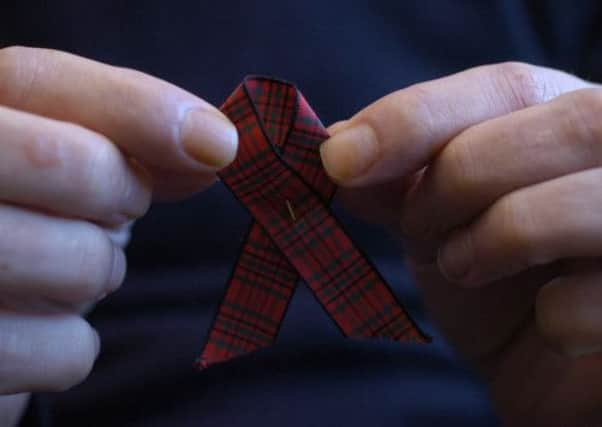HIV awareness gap leads to fears of infection


The poll from the charity Waverley Care found that more than one in ten people wrongly believe the disease can be spread by kissing and spitting while a small proportion of respondents thought that sharing a glass, touching a toilet seat and coughing or sneezing posed a risk of passing on the illness.
A total of 6,000 people in Scotland are currently living with HIV. Since the 1980s, when the first case of AIDS was diagnosed, huge developments in treatment have meant that HIV rarely develops into the full-blown stage of the infection.
Advertisement
Hide AdAdvertisement
Hide AdWaverley Care said the report highlighted a serious “awareness gap” in public knowledge about HIV, which led to discrimination against people living with the infection, but pointed to the three quarters of the population who agreed that more needed to be done to tackle the stigma surrounding the disease.
“It’s hugely positive to see that the majority of Scots have supportive attitudes towards people living with HIV, and feel that more needs to be done to get rid of the stigma and discrimination that prevails in our society,” said Grant Sugden, Waverley Care’s chief executive.
“However, these new findings prove that there are still awareness gaps about HIV in Scotland, which needs to be addressed.”
He added: “More often than not, stigma and discrimination stems from an unfounded fear of infection due to a lack of knowledge about HIV. As indicated in our survey, more people in Scotland need to learn the facts.”
Nearly a quarter of adults are unaware that a person who is HIV positive can live for more than 20 years, the poll found, while 15 per cent mistakenly believe that a person living with HIV cannot have a baby who is HIV negative. Around one in five adults also believe that HIV stops people practising as a doctor, when this is not the case, while 13 per cent admitted that they have no sympathy for people who have the disease.
The virus can be spread only through unprotected sexual intercourse, the transfusion of contaminated blood, sharing of contaminated needles, and potentially between a mother and child during pregnancy, childbirth and breastfeeding.
Scots singer Annie Lennox has lent her support to the Always Hear campaign, which aims to raise awareness of HIV, and stamp out the stigma and discrimination that surrounds the condition.
“Stigma is one of the biggest challenges facing the diagnosis and treatment of HIV in Scotland and around the world today,” said Ms Lennox.
Advertisement
Hide AdAdvertisement
Hide AdHIV treatment has improved dramatically over the last 20 years, but discrimination of the condition still means that people are scared to get tested.
“HIV stigma fuels people’s fear to test, which in turn leads to new infections as people don’t know whether they have HIV or not.”
According to figures from Health Protection Scotland sex between an infected man and a male partner remains the primary transmission method accounting for 71 per cent of cases reported since 2004.
The number of diagnoses among injecting drug users has decreased following the introduction of infection reduction measures in the early 1990s.